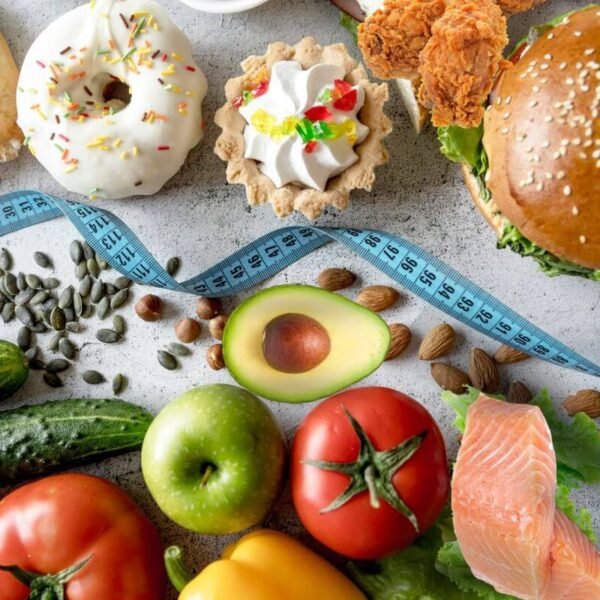In the hustle and bustle of our daily routines, lying down after a delightful meal often beckons. But is this cozy practice a harmless indulgence or a potential culprit for post-dining discomfort? Let’s unravel the intricacies of lying down after eating and its impact on our overall well-being.
Understanding Indigestion
Indigestion, that nagging feeling in your guts, often referred to as an upset stomach, is a broad term encompassing a variety of symptoms. These can range from bloating and gas to heartburn and general discomfort in the abdominal region. It’s a common concern, especially after indulging in our favorite treats. Understanding the factors contributing to indigestion is crucial for establishing healthy post-meal habits.
Causes of Indigestion
- Overeating: We’ve all been there – seconds and thirds seemed like a good idea at the time. Overeating puts extra pressure on the stomach, thus obstructing its ability to digest food efficiently.
- Rapid Eating: The pace at which we devour our meals can affect how our stomachs process the feast.
- Food Choices: Spicy or greasy delights can sometimes stir up trouble.
- Stress and Lifestyle: Our chaotic lifestyles and stress levels play a role in digestive dilemmas.

Other Digestive Conditions
Before we jump into the impact of lying down post-feast, it’s crucial to differentiate indigestion from other digestive troubles. Accurate diagnosis is the first step to effective management.
Treatment for Indigestion
Managing indigestion involves a mix of lifestyle tweaks and, occasionally, some over-the-counter remedies.
- Conventional Approaches: From antacids to lifestyle shifts, there’s a spectrum of ways to ease indigestion.
- Professional Advice: If the discomfort persists, seeking guidance from a healthcare professional is wise.
Alternative Medicine for Indigestion
For those exploring holistic paths, alternative approaches offer additional avenues.
- Herbal Remedies: Ginger and peppermint have been trusted for their digestive prowess.
- Dietary Supplements: Probiotics and digestive enzymes may play a role, but consulting with a professional is wise.
Using Over-the-Counter Medicine for Indigestion
When quick relief is needed, over-the-counter medicines step in.
- Antacids: Rapid relief by neutralizing stomach acid.
- H2 Blockers and Proton Pump Inhibitors: These can help regulate stomach acid production for persistent cases.

Home Remedies to Help Digestion
People use many home remedies to help them digest quickly; simple tweaks to your routine can significantly aid digestion.
Here are some of them that we learned, tried, and appreciated:
- Ginger and Peppermint Tea: Nature’s soothers can be sipped for digestive comfort.
- Sip on hot water(boil the water, but wait till it gets to the right temperature); some people drink that every morning for its many benefits.
- Apple cider vinegar is a popular non-medicinal approach to help reduce indigestion, gas, bloating, or heartburn. Commonly, patients self-treat themselves by mixing one tablespoon of raw, unfiltered apple cider vinegar with 1 cup of warm water and a dash of honey.
- Chewing Fennel Seeds: A post-meal chew can ease bloating.
- Mindful Breathing Exercises: Taking a moment for deep breaths can do wonders.
- Drinking lemon juice or a pinch of baking soda in warm water may boost digestion.
- Consume foods like curd, buttermilk, and kefir since they contain good bacteria that facilitate digestion.
When Lying Down After Eating is a good idea
While reclining after a meal can be blissful, it’s essential to do so wisely.
- After Light Meals:
A moment of repose might enhance digestion.
A short nap of 15-20 minutes after lunch could not harm.
If you feel bloated while relaxing, get up and walk and use one of the remedies we discussed.
- After Heavy Meals:
Lying down after a feast may contribute to indigestion – something to keep in mind at post-holiday dinners.
After dinner, it’s better to walk for at least 20 minutes to digest.

Tips to Improve Digestion
Boost your digestive prowess with these simple lifestyle tips.
- Mindful Eating: Savor each bite, and give your stomach time to signal when it’s satisfied.
- Increase consumption of fruits and vegetables since they have a lot of fiber that aids adequate bowel movement and digestion.
- Chew your food well because digestion begins right inside the mouth. The enzymes that aid digestion are present in the saliva produced by the salivary glands. When you eat slowly and chew your food well, these enzymes get adequate time to digest the food.
- Stay Hydrated: Water is your digestive system’s best friend.
- Regular Exercise: A brisk walk post-meal can aid digestion.
Avoid trigger foods
People have varying responses to various foods and beverages that frequently trigger issues with the digestive system.
Some examples are:
- processed foods
- Seasonings and spices
- fried foods
- acidic foods, such as vinegar and citrus fruits like oranges
- sweeteners, such as fructose
- alcohol
- caffeine
Limited consumption of these can assist in the improvement of digestion.
The amount of sugar, salt, and saturated fats that are included in ready-made meals and fast food is also quite high. In addition to being more difficult for the body to digest, they can also lead to more digestive issues such as constipation and gas.

Is It Bad to Lying Down After Eating?
If you are asking about going to sleep right after a big dinner, the short and decisive answer is NO, you can not.
Addressing a common concern, lying down after a meal, can be acceptable, but there are nuances to consider.
- Consider Meal Size and Content: A light meal may invite a leisurely lie-down, but it’s wise to stay upright after a feast.
- Mindful Post-Meal Relaxation: Gentle reclining in a comfy spot can enhance relaxation, potentially benefiting digestion.
Remember
In the delicate balance of post-meal habits, lying down after eating can be a relaxing choice if done judiciously. Embrace a holistic approach to digestion, from mindful eating to considering alternative remedies, ensuring a harmonious relationship with your digestive system.
Remember, it’s all about understanding your body and adopting habits that promote satisfaction and overall well-being.













